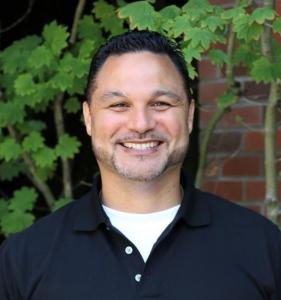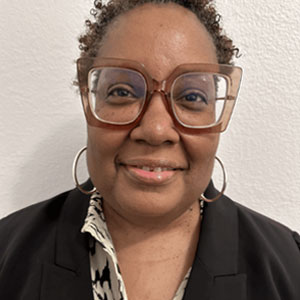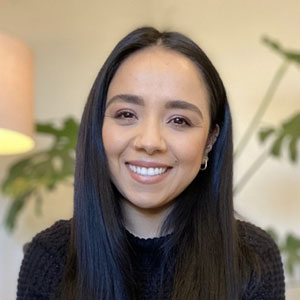Master of Science Rehabilitation Counseling
The Rehabilitation and Mental Health Counseling program offers a Master of Science (M.S.) degree in Rehabilitation Counseling through a CACREP-accredited curriculum. The program integrates robust mental health coursework that enhances students’ competencies in rehabilitation counseling practice.
Graduates are prepared to deliver counseling and consultative services to individuals with disabilities across diverse settings. They also meet the academic requirements to pursue licensure in Oregon as Licensed Professional Counselors (LPCs), enabling practice in a variety of mental health environments.
The program is designed for flexibility. Students may complete the degree in as little as two years of full-time study, or within 2.5 to 3 years if pursuing part-time enrollment to accommodate employment or geographic considerations. The curriculum blends fully online courses with hybrid components, requiring in-person attendance on the WOU:Salem campus only one to two Saturdays per month during each academic term.
This structure makes the RMHC program particularly accessible to students residing outside the immediate Salem area while maintaining a high standard of clinical training and academic rigor.
Apply now to start the program fall 2026!
credits required
Program Details
Overview
Mission:
Prepare rehabilitation and mental health professionals who are skilled in advocating for and with persons who are deaf or have disabilities and who are competent counselors knowledgeable about the development and dissemination of innovative and culturally sensitive rehabilitation practices and policies.
Designed for:
The program emphasizes five major components:
- Individual and group counseling theory and technique;
- Influence of career acquisition and personal independence on the daily lives of persons with disabilities;
- Social and psychological impact of disability on an individual and family;
- Federal, state, and private service delivery systems for persons with disabilities; and
- Self-awareness on the part of counselors-in-training.
Where this degree can take you:
- Vocational Rehabilitation Counselor
- Mental health counselor in a community or higher education setting
- Case Manager with a vendor who serves vocational rehabilitation setting
- Youth Transition Specialist
- Community services coordinator for adults with disabilities
- Disabled student services
- Client Advocate
- Group or supported living coordinator
To start, you need:
- A bachelor’s degree
- 2 years of working experience is preferred
Finishing will take:
- 2-3 years
- 90 credits
- Internship
- Comprehensive Case Conseptulization Presentation
Begin your MS in Rehabilitation Counseling program:
- Fall term
Where you will take classes:
- Online/distance fall, winter, spring, and summer
- On-campus weekend courses (1-2 times per month) at the WOU Salem Campus
Technology you will need:
- Computer with internet connection
What you will learn:
You will receive training to provide individuals who are Deaf and/or have disabilities an opportunity to live fulfilling, productive, and independent lives. FAQs
Learning outcomes:
- Demonstrate a comprehensive understanding of rehabilitation and mental health counseling theories, models, and policies.
- Develop proficiency in social justice counseling that empowers diverse individuals with various levels of ability to attain self-determination, equity, meaningful employment, full community inclusion, and personal growth.
- Uphold professional excellence and leadership through ethical practice and integrity.
Accreditation
The program is certified by the Council on Accreditation of Counseling & Related Education Programs (CACREP). Program Outcomes for 2024-2025, CACREP Program Evaluation Report for 2024-2025.
Application Requirements
Deadlines and key dates:
- Priority Application Deadline: January 15th Applications received by the priority application deadline of January 15th will receive priority consideration.
- Review Process: Applications will be reviewed beginning January 15th and then monthly until the cohort is full.
- Interview Notification: Applicants who submit completed applications by the priority deadline will be notified by February 1st of their interview date.
- Group Interview to be held February 2026
- After Priority Deadline: Completed applications received after the priority deadline will be considered on a rolling basis until the cohort is full.
Detailed application requirements:
Application materials required for WOU Graduate admission:
- Application Fee $60
- Transcripts
- You can upload an unofficial copy of your transcript to complete your application for admission. Save as a PDF with your first and last name in time from all previous colleges. We will require an official transcript from the Colleges or Universities you have attended for formal admission.
- Transcripts are used as Evidence of completion of a four-year baccalaureate degree (or international equivalent) from a regionally accredited institution as defined by the American Association of Collegiate Registrars, with a cumulative B average (equivalent 3.00 on a U.S. 4.00 grading scale) on the most recent baccalaureate degree. Applicants who hold a master’s degree will have the 3.0 GPA requirement waived. Students with less than 3.0 can also provide passing GRE scores to be fully admitted.
- Current Resume
- Save as a PDF with your first and last name in the title.
- Writing Sample
- Your ability to express ideas in an appropriate manner is an important factor in successful graduate study. This sample will be used to assess your writing skills. Therefore, please take care in preparing your response. Writing samples must be typed, double-spaced, and a minimum of 1 page but not more than 2 pages in length.
- Prepare a candid letter of self-recommendation to the Rehabilitation and Mental Health Counseling Program. Describe personal qualities and professionally related experiences you have had that you believe make graduate study in counseling appropriate for you. What are your highest hopes and greatest concerns about yourself as a student and as a rehabilitation counselor? Tell us about your career plans. Write the letter in your own form and style.
- Recommendations
- Provide at least two recommendations from employers and/or colleagues that address your competence as a counselor, your potential to teach/lead/mentor, and your ability to navigate meaning transfer between parties who do not use the same language. Our online recommendation system will solicit their responses via email.
- Background Information
- You will be prompted to complete a background form within your online application
Process: Applications will be reviewed once all application materials have been submitted. Please refer to the Application Checklist in your Graduate Application Portal to confirm the status of your submitted materials. The Graduate Application Portal will also provide additional details about the checklist items for further clarification. You will be notified via email regarding changes in the status of your application or if you are missing any application components.
Curriculum
MS Rehabilitation Counseling curriculum overview:
Program core course requirements for the RC/MHC track begin the fall term each year and require a minimum of seven sequential terms, including one summer term.
CAUTION: Due to the rigorous nature of full-time graduate coursework and associated assignments, students are strongly advised not to work more than 20 hours per week during their first year of study. The internship occurs during the Fall, Winter, and Spring terms of the second year. It requires a commitment of 20 to 35 hours per week in order to complete 600 total clock hours, including a minimum of 240 hours of direct client contact.
Your plan of study:
Once admitted to M.S. Rehabilitation Counseling program, you will work with an advisor to plan the courses you will take and how you will complete the academic requirements of the program. By filing this Program Plan (PDF form), you have a road map for completing your degree and clarity on what to expect. Please review the RMHC Student Handbook and the RMHC Clinical Handbook for more information.
Prospects after graduation
Over the past five years, 96-100 percent of our graduates were employed in appropriate professional fields within six months of graduation. Retention in the field of rehabilitation remains at 94 percent up to five years after graduation.
Faculty
 CHUNG-FAN NI
CHUNG-FAN NI
Professor
503-838-8038 | nic@wou.edu | RWEC 135
 CHIEN-CHUN LIN
CHIEN-CHUN LIN
Associate Professor
503-838-9305 | linc@wou.edu | RWEC 141
 CARLOS TEXIDOR MALDONADO
CARLOS TEXIDOR MALDONADO
Assistant Professor
texidormaldonadoc@wou.edu
 IRETI DEBATO-CANCEL
IRETI DEBATO-CANCEL
Instructional Faculty
canceli@wou.edu
 ISABEL DRYDEN
ISABEL DRYDEN
Director of Behavioral Health
drydeni@wou.edu
The people behind the MS RC program:
The program is accredited by the Council for Accreditation of Counseling and Related Educational Program (CACREP). Our faculty prides itself in being a National leader in Rehabilitation Counseling Education. Please let us know if we can help answer questions about this program, your career, or application requirements.
RSA Information
Rehabilitation Services Administration:
WOU’s RMHC program is currently receiving funding from Rehabilitation Services Administration (RSA), U.S. Department of Education to assist students with their tuition expenses. RSA scholarships cover a portion of the tuition and may be awarded for one or two years, depending upon continued funding. Not all admitted students are funded through RSA scholarships. To receive support through RSA, the recipient must commit to work for a state Vocational Rehabilitation Division (VRD) or a related agency through which the individual has a service arrangement with the State/Federal vocational rehabilitation agency to provide needed services to vocational rehabilitation consumers. For every academic year of scholarship support, RSA requires the recipient to work two years as a professional in the rehabilitation counseling field.
- Scholarship Information
- Forms
- All forms require Adobe Reader ™ to read the PDF forms.
Mission:
Prepare rehabilitation and mental health professionals who are skilled in advocating for and with persons who are deaf or have disabilities and who are competent counselors knowledgeable about the development and dissemination of innovative and culturally sensitive rehabilitation practices and policies.
Designed for:
The program emphasizes five major components:
- Individual and group counseling theory and technique;
- Influence of career acquisition and personal independence on the daily lives of persons with disabilities;
- Social and psychological impact of disability on an individual and family;
- Federal, state, and private service delivery systems for persons with disabilities; and
- Self-awareness on the part of counselors-in-training.
Where this degree can take you:
- Vocational Rehabilitation Counselor
- Mental health counselor in a community or higher education setting
- Case Manager with a vendor who serves vocational rehabilitation setting
- Youth Transition Specialist
- Community services coordinator for adults with disabilities
- Disabled student services
- Client Advocate
- Group or supported living coordinator
To start, you need:
- A bachelor’s degree
- 2 years of working experience is preferred
Finishing will take:
- 2-3 years
- 90 credits
- Internship
- Comprehensive Case Conceptualization Presentation
Begin your MS in Rehabilitation Counseling program:
- Fall term
Where you will take classes:
- Online/distance fall, winter, spring, and summer
- On-campus weekend courses (1-2 times per month) at the WOU Salem Campus
Technology you will need:
- Computer with internet connection
What you will learn:
You will receive training to provide individuals who are Deaf and/or have disabilities an opportunity to live fulfilling, productive, and independent lives. FAQs
Learning outcomes:
- Demonstrate a comprehensive understanding of rehabilitation and mental health counseling theories, models, and policies.
- Develop proficiency in social justice counseling that empowers diverse individuals with various levels of ability to attain self-determination, equity, meaningful employment, full community inclusion, and personal growth.
- Uphold professional excellence and leadership through ethical practice and integrity.
Accreditation
The program is certified by the Council on Accreditation of Counseling & Related Education Programs (CACREP). Program Outcomes for 2024-2025, CACREP Program Evaluation Report for 2024-2025.
Deadlines and key dates:
Priority Application Deadline: January 15th
Applications received by the priority application deadline of January 15th will receive priority consideration.
- Review Process: Applications will be reviewed beginning January 15th and then monthly until the cohort is full.
- Interview Notification: Applicants who submit completed applications by the priority deadline will be notified by February 1st of their interview date.
- Group interview to be held February 2026
- After Priority Deadline: Completed applications received after the priority deadline will be considered on a rolling basis until the cohort is full.
Detailed application requirements:
Application materials required for WOU Graduate admission:
- Application Fee $60
- Transcripts
- You can upload an unofficial copy of your transcript to complete your application for admission. Save as a PDF with your first and last name in time from all previous colleges. We will require an official transcript from the Colleges or Universities you have attended for formal admission.
- Transcripts are used as Evidence of completion of a four-year baccalaureate degree (or international equivalent) from a regionally accredited institution as defined by the American Association of Collegiate Registrars, with a cumulative B average (equivalent 3.00 on a U.S. 4.00 grading scale) on the most recent baccalaureate degree. Applicants who hold a master’s degree will have the 3.0 GPA requirement waived. Students with less than 3.0 can also provide passing GRE scores to be fully admitted.
- Current Resume
- Save as a PDF with your first and last name in the title.
- Writing Sample
- Your ability to express ideas in an appropriate manner is an important factor in successful graduate study. This sample will be used to assess your writing skills. Therefore, please take care in preparing your response. Writing samples must be typed, double-spaced, and a minimum of 1 page but not more than 2 pages in length.
- Prepare a candid letter of self-recommendation to the Rehabilitation and Mental Health Counseling Program. Describe personal qualities and professionally related experiences you have had that you believe make graduate study in counseling appropriate for you. What are your highest hopes and greatest concerns about yourself as a student and as a rehabilitation counselor? Tell us about your career plans. Write the letter in your own form and style.
- Recommendations
- Provide at least two recommendations from employers and/or colleagues that address your competence as a counselor, your potential to teach/lead/mentor, and your ability to navigate meaning transfer between parties who do not use the same language. Our online recommendation system will solicit their responses via email.
- Background Information
- You will be prompted to complete a background form within your online application
Process: Applications will be reviewed once all application materials have been submitted. Please refer to the Application Checklist in your Graduate Application Portal to confirm the status of your submitted materials. The Graduate Application Portal will also provide additional details about the checklist items for further clarification. You will be notified via email regarding changes in the status of your application or if you are missing any application components.
Loading program information...
curriculum overview:
Loading program information...
Program core course requirements for the RC/MHC track begin the fall term each year and require a minimum of seven sequential terms, including one summer term.
CAUTION: Due to the rigorous nature of full-time graduate coursework and associated assignments, students are strongly advised not to work more than 20 hours per week during their first year of study. The internship occurs during the Fall, Winter, and Spring terms of the second year. It requires a commitment of 20 to 35 hours per week in order to complete 600 total clock hours, including a minimum of 240 hours of direct client contact.
Your plan of study:
Once admitted to M.S. Rehabilitation Counseling program, you will work with an advisor to plan the courses you will take and how you will complete the academic requirements of the program. By filing this Program Plan (PDF form), you have a road map for completing your degree and clarity on what to expect. Please review the RMHC Student Handbook and the RMHC Clinical Handbook for more information.
Prospects after graduation
Over the past five years, 96-100 percent of our graduates were employed in appropriate professional fields within six months of graduation. Retention in the field of rehabilitation remains at 94 percent up to five years after graduation.
 CHUNG-FAN NI
CHUNG-FAN NI
Professor
503-838-8038 | nic@wou.edu | RWEC 135
 CHIEN-CHUN LIN
CHIEN-CHUN LIN
Associate Professor
503-838-9305 | linc@wou.edu | RWEC 141
 CARLOS TEXIDOR MALDONADO
CARLOS TEXIDOR MALDONADO
Assistant Professor
texidormaldonadoc@wou.edu
 IRETI DEBATO-CANCEL
IRETI DEBATO-CANCEL
Instructional Faculty
canceli@wou.edu
 ISABEL DRYDEN
ISABEL DRYDEN
Director of Behavioral Health
drydeni@wou.edu
The people behind the MS RC program:
The program is accredited by the Council for Accreditation of Counseling and Related Educational Program (CACREP). Our faculty prides itself in being a National leader in Rehabilitation Counseling Education. Please let us know if we can help answer questions about this program, your career, or application requirements.
Rehabilitation Services Administration:
WOU’s RMHC program is currently receiving funding from Rehabilitation Services Administration (RSA), U.S. Department of Education to assist students with their tuition expenses. RSA scholarships cover a portion of the tuition and may be awarded for one or two years, depending upon continued funding. Not all admitted students are funded through RSA scholarships. To receive support through RSA, the recipient must commit to work for a state Vocational Rehabilitation Division (VRD) or a related agency through which the individual has a service arrangement with the State/Federal vocational rehabilitation agency to provide needed services to vocational rehabilitation consumers. For every academic year of scholarship support, RSA requires the recipient to work two years as a professional in the rehabilitation counseling field.
- Scholarship Information
- Forms
- All forms require Adobe Reader ™ to read the PDF forms.
Program Highlights
Over the past five years, 96-100 percent of our graduate were employed in appropriate professional fields within six months of graduation. Retention in the field of rehabilitation remains at 94 percent up to five years after graduation. Our graduates are currently working as state vocational rehabilitation counselors all over the United States. In addition we have graduates working at the Commission for the Blind, Department of Labor, Social Security Administration, and the Veterans’ Administration. We also have graduates working in mental health fields as addictions counselors, community mental health, criminal justice counselors, and independent living counselors. The variety of opportunities for careers with this education are endless.
Why choose WOU?
- Graduates are eligible to seek Oregon licensure as a licensed professional counselor in mental health settings.
- RSA grant opportunities to assist with tuition expenses.
- Long standing success in areas of placement and employment for RC graduates.

